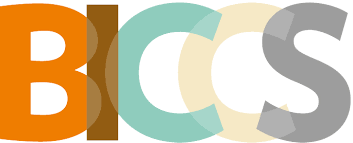Editorial. Conference proceedings of the 2nd Biennial International Conference for the Craft Sciences—BICCS 2023
DOI:
https://doi.org/10.7577/formakademisk.5589Keywords:
BICCS 2023Abstract
The papers in this issue comprise the proceedings of the 2nd Biennial International Conference for the Craft Sciences, held 20–22 September 2023 in Mariestad at the Craft Laboratory, affiliated with the Department of Conservation, University of Gothenburg, Sweden. Craft is an integral aspect of daily life and work, activated in all the knowledgeable processes of making and transforming ideas into artefacts and services. Craft is commonly anticipated as a form of production, but it may also be practiced as a social and political activity and as a way of knowing and being in the world. Craft is omnipresent and multi-folded. Consequently, craft research is diverse, conducted across and within different disciplines and academic contexts, and operates with distinct perspectives and approaches.
References
Groth, Camilla, Westerlund, Tina, & Almevik, Gunnar. (2021). Editorial. Conference proceedings of the 1st Biennial International Conference for the Craft Sciences – BICCS 2021. FormAkademisk, 14(2). https://doi.org/10.7577/formakademisk.4361
Kuijpers, Maikel. (2017). An Archaeology of Skill. Metalworking Skill and Material Specialization in Early Bronze Age Central Europe. Routledge.

Downloads
Published
How to Cite
Issue
Section
License
Copyright (c) 2023 Gunnar Almevik, Géraldine Brun, Katarina Saltzman, Anneli Palmsköld

This work is licensed under a Creative Commons Attribution-NoDerivatives 4.0 International License.
Authors who publish with this journal agree to the following terms:
- Authors retain copyright and grant the journal right of first publication with the work simultaneously licensed under a Creative Commons Attribution 4.0 License that allows others to share the work with an acknowledgement of the work's authorship and initial publication in this journal.
- Authors are able to enter into separate, additional contractual arrangements for the non-exclusive distribution of the journal's published version of the work (e.g., post it to an institutional repository or publish it in a book), with an acknowledgement of its initial publication in this journal.
- Authors are permitted and encouraged to post their work online (e.g., in institutional repositories or on their website) prior to and during the submission process, as it can lead to productive exchanges, as well as earlier and greater citation of published work (See The Effect of Open Access).
- The author(s) must manage their economic reproduction rights to any third party.
- The journal makes no financial or other compensation for submissions, unless a separate agreement regarding this matter has been made with the author(s).
- The journal is obliged to archive the manuscript (including metadata) in its originally published digital form for at least a suitable amount of time in which the manuscript can be accessed via a long-term archive for digital material, such as in the Norwegian universities’ institutional archives within the framework of the NORA partnership.
The material will be published OpenAccess with a Creative Commons 4.0 License which allows anyone to read, share and adapt the content, even commercially under the licence terms:
This work needs to be appropriately attributed/credited, a link must be provided to the CC-BY 4.0 licence, and changes made need to be indicated in a reasonable manner, but not in any way that suggests that the licensor endorses you or your use.



